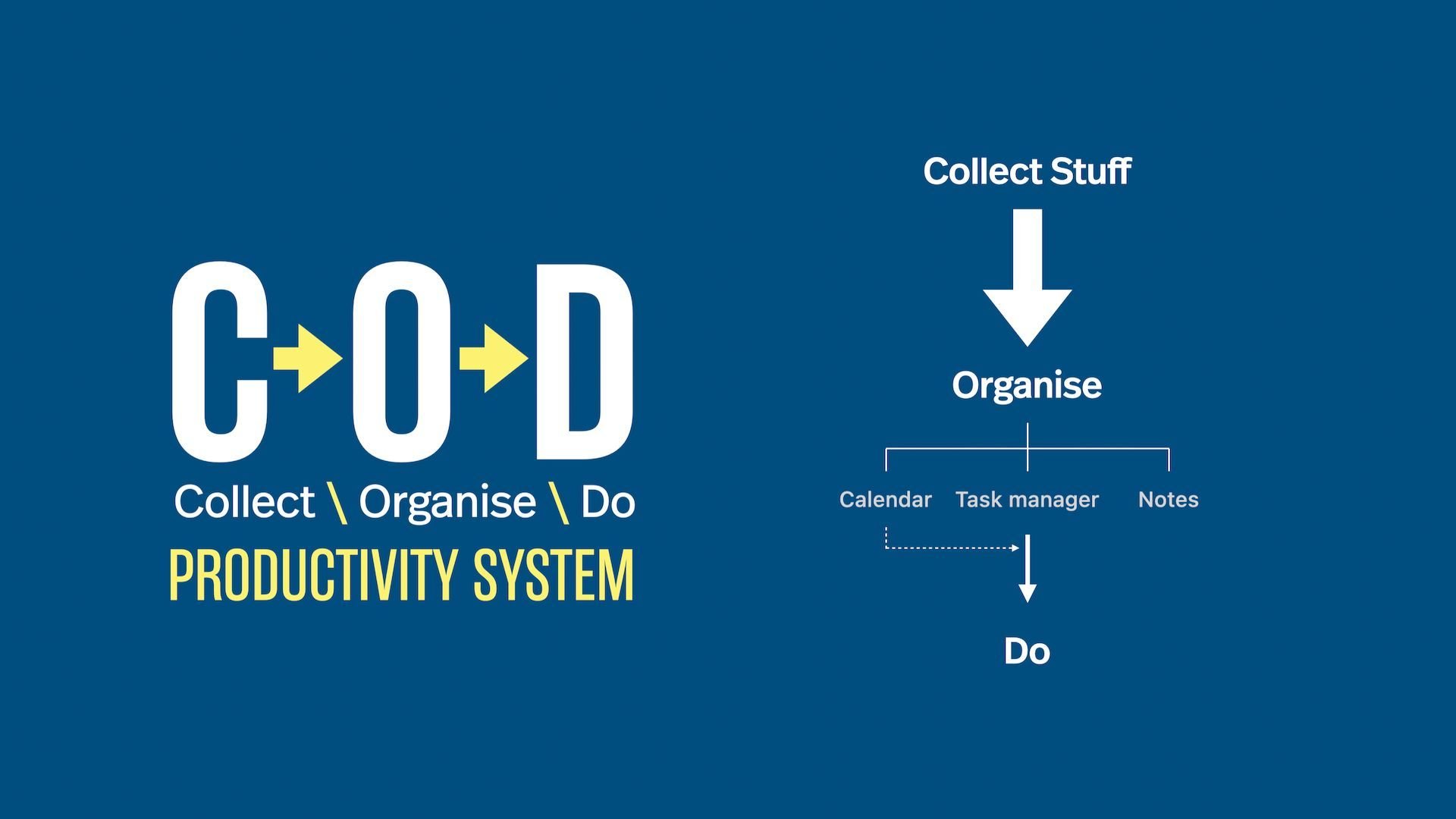The Critical Part Of Any Productivity System.
There are two things all dependable productivity systems have in common.
First, they are focused on getting “stuff” into the system quickly and easily. Second, they are focused on processes rather than tools.
Collect stuff.
The advantage of having a personal productivity system is you become less dependent on your brain to remember things. This means you can externalise whatever is asked of you and then make decisions about what needs to be done and when. This means that you collect stuff in a trusted place for later processing.
Introducing the UCT.
Your UCT is your Universal Collection Tool. This is how you collect tasks, ideas, and events for later processing. Adding things must be as easy as possible for this to be effective. This will likely be your mobile phone, which you probably carry wherever you go. But it goes beyond that. How you collect these tasks, ideas, and events should be as effortless as possible. If it is complicated and requires too many button presses, you will resist, and that’s when your system will fail.
You may prefer to use a notebook or a set of index cards to collect stuff. This is perhaps the most seamless way to collect. If you are carrying a pocket notebook with you, developing the habit of pulling out your notebook every time you have an idea or are asked to do something is worthwhile.
Whichever way you choose to collect, the important factor is you trust it. It will not be helpful if you are not confident that whatever you collect is going where it needs to go. A sense of peace comes with knowing that once you have collected something, it has gone where it needs to go for later organisation.
Organising.
That leads us to the organising part. It’s all very good that you have collected everything. But what you collect is only useful if you organise it into its natural categories. A task will go to your task manager or to-do list. An idea goes to your notes, and an event goes to your calendar.
Yet there is a little more to organising than just allocating things to their rightful place. You may find that much of it is no longer relevant as you go through what you collected. For example, an article you saw earlier in the day may no longer interest you, or an idea you had now seems unrealistic. Be comfortable deleting these. Adding these in the hope you will find them relevant later will only clutter your system. The delete key is your friend. Use it.
How you organise your tasks is a personal thing. Many people like the Time Sector System method, where tasks are organised by when you will do them. Others prefer to organise by project.
Whichever way you choose, it’s essential that it works for you and that you know where everything is.
Another consideration when organising your tasks is when you want to see them. This is a critical question because if you randomly add dates, you will soon be overwhelmed by things that don’t need to be done today.
With your task manager, you only want to see what needs to be done today. Anything else will distract you. Your list of tasks for today should always be focused and realistic.
When to do your organising.
Ideally, this is best done before you finish the day. However, that is not always possible. Doing your organising every twenty-four hours ensures you do not spend too much time each day organising. If you are sporadic, you will find you are spending too much time in this area — which means it feels like a drag.
I recommend that my coaching clients process what they collected fifteen minutes before they finish their work. If your finish time is 6:00 pm, you would stop at 5:45 pm and give yourself time to clear and process your inbox.
Doing.
This is all about doing the right work at the right time.
If you have collected everything and given yourself ten minutes to process it at the end of each day, you will have completed 95% of your planning. You will know what needs to be done when you begin the day, and you can focus your time and attention on completing those tasks.
This allows you to get on and do the work that needs to be done that day.
Accepting that you will never be perfect with your plans is important. There are too many unknowns each day. However, if you are careful not to over-schedule yourself and allow sufficient time for the unknowns, you will always have the flexibility to adapt to the changes in your day.
Over the last few weeks, I have been updating my FREE COD online course. This course teaches you the essentials of putting together a functional time management and productivity system — a system that will grow with you and become the backbone of your getting the right things done on time, every time.
Thank you for reading my stories! 😊
If you would like to receive the best productivity and time management tips and tricks each week in one convenient email, you can subscribe to my weekly newsletter here.
You can also learn more about what I do here on my website


